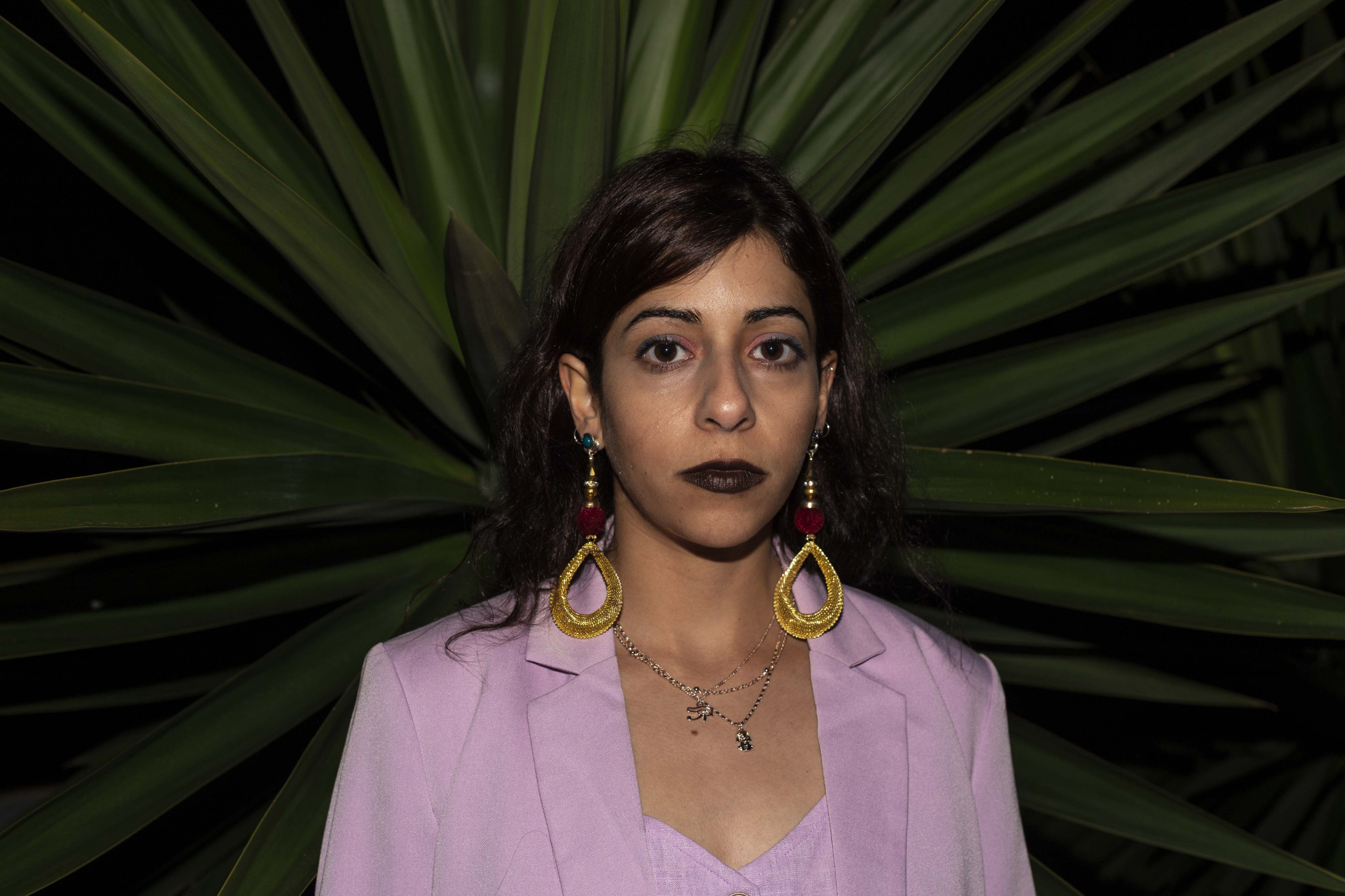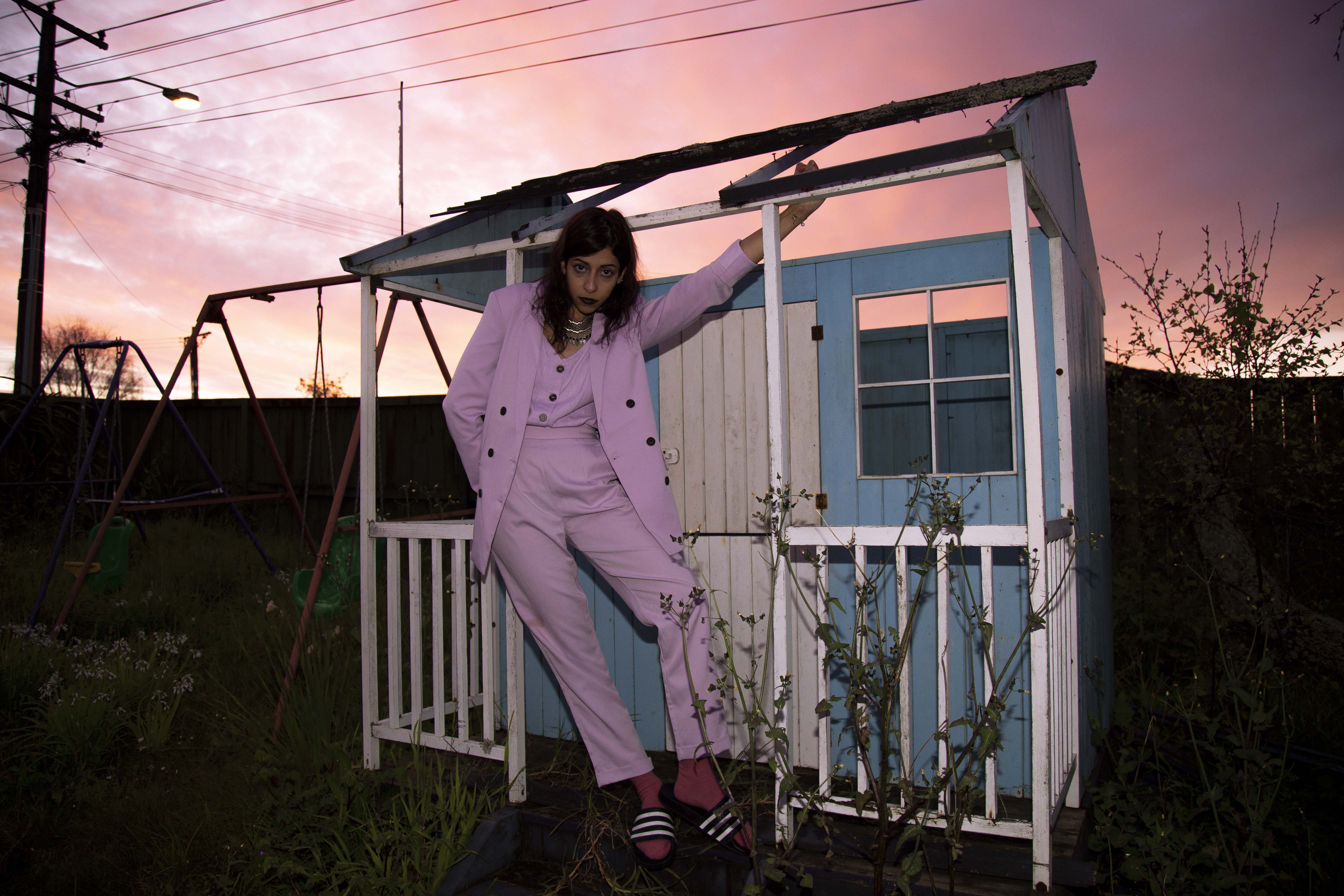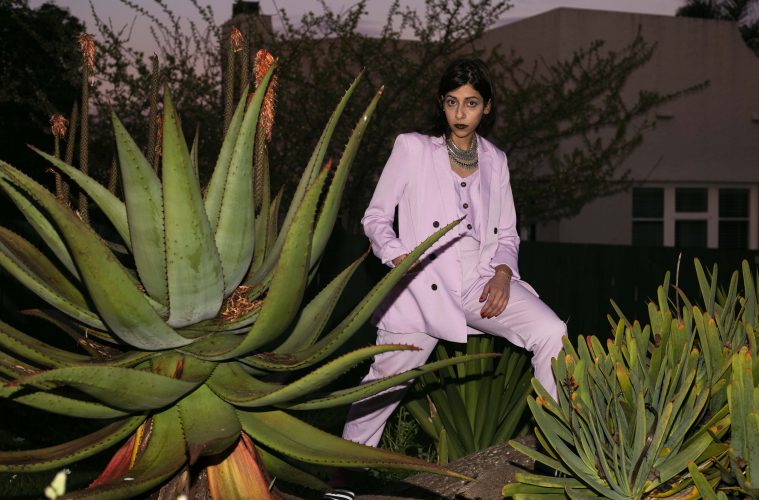Interview by Shukri Lawrence
Copy Edited by Eliza Marks
Photographed by Aleyna Martinez
Watching Meer’s videos for the first time is an experience: she is a badass Arab woman who lays her powerful lyrics down over a punchy beat. To give you an idea, in her music video for “Pomegranate”, Meer appears in campy makeup with vogueing belly and hip hop dancers against changing backgrounds filled with her heritage. Most important is the power stance she takes while rapping, “you’re messing with a bad bitch.” It’s empowering!
Meer is an Iraqi/Palestinian/Lebanese female rapper born in Dubai and raised in New Zealand. She raps direct lyrics over crisp beats, exploring a range of topics that come together by the end of the song. “My tracks aren’t always about one specific thing,” Meer said. “In a song I could be talking about five different things and I would go from one thing to another.” Her ability to weave themes together in her lyrics started with her writing poetry, a medium she’s been exploring since she was young. “I was always into words and writing. It was always a part of me. I’ve always been a creative person, it was an outlet for me to express myself. I even wrote poems about my crush when I was younger!“
When Meer was 6 years old, she moved to New Zealand. She didn’t understand the significance of the move at first, or how it would affect her. She said, “I didn’t see it like I was an Arab person moving to the Western world where it would be hard for me. I saw it as a new place, new language, and a new way of living. It took me time to realize I got whitewashed.1” Meer is now comfortable expressing her identity proudly in her work and in her daily life as an Iraqi/Lebanese/Palestinian living in New Zealand, but it took her a while to get over the language barriers, the different mannerisms and modes of self expressions. She shared that when she was in her first year of high school, “I wasn’t allowed to shave my legs, and meanwhile my classmates all had their legs shaved. They were dying their hair, and it was all about how white and blonde you looked. I wasn’t any of that, I didn’t fit in.”

Photo by Aleyna Martinez
Meer’s real name is Reem, but she considers Meer to be her “alter ego.” The concept of alter egos has been popularized among artists, especially musicians who find themselves more expressive with their other side; the part that they don’t usually share with others. When asked the difference between Reem and Meer, she said, “Reem is quite weird, shy and takes time to adjust to people, while Meer is loud, obnoxious and doesn’t give a f*ck. I go in between the two on a daily basis, she doesn’t only come out on stage, she comes out in my daily life!”
Meer’s music comes from an urge to express herself. She said, “Music comes to me when I start feeling confused, sad, angry, or in need of some sort of venting outlet. I ask for a beat or find instrumentals, and just start writing raps that express how I feel.” Meer started expressing herself through lyrics and verse from a young age. “I’ve been rapping since I was 7 years old. I used to learn the lyrics of other rappers and write lots of poems. I used my poems as lyrics for my raps, I found it hard to rap on a beat, but easier to write the words. Eventually, when I was 20 years old, I started learning how to rap on a beat and it got easier as I kept going.”
“Reem is quite weird, shy and takes time to adjust to people, while Meer is loud, obnoxious and doesn’t give a f*ck.”
One of the things that Meer works through in her lyrics is mental health. As a survivor of domestic abuse, Meer didn’t realize she was getting abused for a while. “The way I usually explain it is like, you can only blow a balloon so much before it pops. For me, it popped a few years ago and I got pretty suicidal. Since then, I started to realize what I went through. I started doing Cognitive Behavioral Therapy, worked a lot on myself, and realized that there was nothing wrong with me. The way that I am is the result of the childhood things that have happened to me.”
Once Meer started healing herself, she began sharing what she’d been going through with her close circle. “I had to teach my family about mental health because they didn’t know what it was. I showed my mom a YouTube video that discusses and explains mental health in Arabic, and it was only then when she understood what it was. She was shocked because she had no idea.” Mental health remains generally undiscussed and stigmatized across the Middle East and North Africa, and there are limited mental health resources despite high rates of depression, anxiety disorder, PTSD, and suicide across the region2.

Photo by Aleyna Martinez
Meer believes that the way to begin the conversation and dismiss the shame around mental health is to start with oneself and expand outward to families, online communities, and publications/organizations that provide a safe space to discuss these topics. She says, “I’m happy to say that my safe space is now with my family, my partner, my friends, and myself. I was able to find that safe space because of therapy. It took a lot of work to reach this stage, and it took a lot of discussions and opening up. That’s why I believe it starts within the person.”
Meer’s latest release, “Najaf,” is the first single from her upcoming album. Najaf is the city in Iraq where her mother was born, and the song serves as a loving tribute to her. ’ In one verse, Meer writes, “I’m sorry mama, I never meant to hurt you. But when I’ll make a dollar, nobody will ever hurt you.” The song is representative of the new sound Meer is exploring on the album, one that is more peaceful, sensual, and instrumentally-focused.
When asked about the future, Meer said, “I want there to be a safe space for everyone to exist. I want us all to coexist together, being freely ourselves.” We can find freedom, solace, power and unity she hopes for at once in her music!
Listen to Meer’s music here
View this post on Instagram
Thanks to @sydneymardigras & @courtyardsessions for having me in sydney it was a pleasure ❤️

